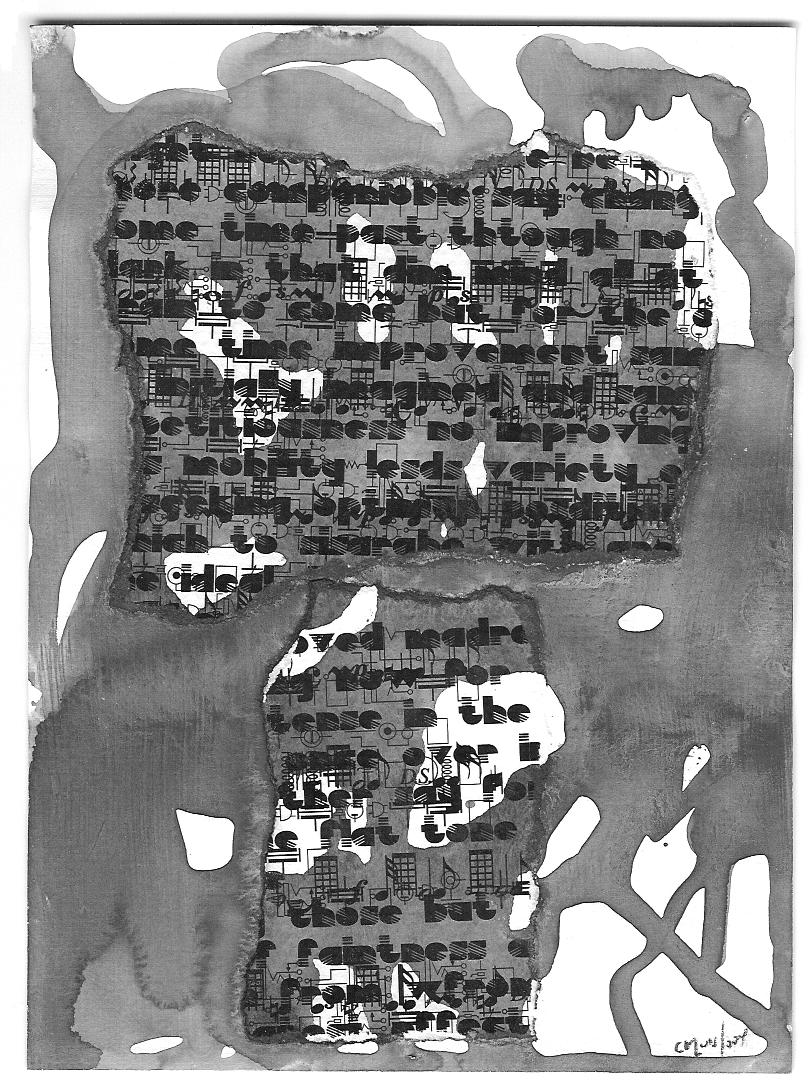|
|
|
[p. 4 of 4]
[Luis continues]... artists and critics in this process. This trend began during the Renaissance but has become an acceptable way of life in our times.
Again, how to change all that? I am pessimistic about any changes. First of all, the instruments of change, the so called "left,'' is in disarray in most parts of the world and almost nonexistent in the USA. The duty of the left has been always to represent the critical conscience of its time. In that sense the left should be against the forces in power including the forces that manipulate the art market. In fact we shouldn't be talking about an "art market" at all, since art and the market represent contradicting values. The market is about price and art is about values. But the former has managed to identify one with the other. One good example is the Art Basel. All you hear from them is the thousands of dollars paid by a snob for a work by a nominated "cutting edge" artist that the art galleries, museums, etc., have destined to be the star of the show. The almighty dollar produces, then, the miracle of transforming a work of art into a simple piece of merchandise.
Frankly I don't see how we can stop that trend in the foreseeable future, barring of course and unforeseeable revolution....
If I had to give a piece of advice to all the artists my one and only would be: find another job to make a living and become Sunday painters, or whatever you wish to be.

McSweeney: I'll just ask you this final question: What question does each of you have for the other?
Luis: Derek, given the scope of the computer revolution and all its future ramifications, what role, if any, do you believe that poetry has in these changes? Taking into consideration that poetry goes far beyond the simple written word.
White: That's a good question that I will first attempt to answer in reverse (how computers have influenced "poetry" or art). To me computers are great tool of research, discovery and propagation. Google is the best thing since sliced bread. The information that is at our fingertips would have been inconceivable at the time I graduated from high school (in the mid 80s). And its potential as a marketing tool and means to propagate information is astounding. In the case of SleepingFish, I printed out 250 copies of the last issue, most of which I gave away or are probably gathering dust on bookstore shelves. On the other hand, the SleepingFish website receives on average about 350 unique visitors per day. But I think we are all aware of the impact of the Internet and I don't think that answers the question you're asking, except to point out that we are living in a time where there is no shortage of information and ideas and anyone can call him- or herself "a poet." I guess "poetry" or art's ramification in this is as a filter. I hate to always revert back to biological or mimetic metaphors, but that's how I tend to think of things, consciously or not. I don't think anybody has the authority to dictate what's art and what's not art or poetry, just like I would treat all organisms with DNA as life that should be revered equally. Poetry is the capsule that shrouds ideas. In order to be effective and propagate in this climate of information overload, these poetic capsules have to be engaging and compelling to the subjects reading or viewing them, otherwise the encapsulated idea or concept of it will never survive. Poetry is the configuration of feathers on a bird in a massive flock of birds that another bird singles out as a mate even if it is not consciously sure why.
Okay, here's my question for Carlos. In your creations such as Traptexts [a chapbook published by eIgHt pAgE press—ed.] you have created your own veritable lexicon, rife with symbols, visual icons, and characters, some borrowed from familiar or foreign languages, others seemingly made up from scratch. In creating works such as this, what is most important to you—how that language looks on the page, how that language sounds if read out loud or performed, what the combination of elements indirectly invokes, or what the language directly communicates? How important is legibility or accessibility to you, both in creating and reading?
Luis: The word is, let's not forget it, primarily sound, a sound that eventually "received'' a meaning. Language, therefore, is composed first by sounds (music) and signs (the written word). To me, it's a question of going back to the basics by using the principle of bricolage and creating a combination of all sorts of signs, sounds, and words—some invented, others from different languages. Maybe now they don't have any meaning but eventually those texts of mine (I prefer to call them texts and not poems since poetry is too loaded with romantic conceptions) will, in turn, "receive'' meanings. By then who knows what new devices the poets will have at their disposal? Maybe language will be a thing of the past, or maybe we will return to the purity of sound. What the occultists called "the language of the birds." 
Walls for Finnegans, Carlos M. Luis
|
|
{buy the by}
|

